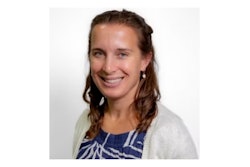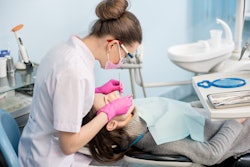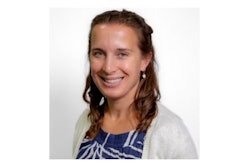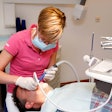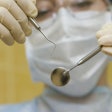The dental hygiene community has been abuzz with several recent developments. While some developments have been positive, others have raised concerns. In this article, I'll provide a quick recap of the latest news in the dental hygiene world.
Dental hygiene standards
The American Dental Hygienists’ Association (ADHA) released new standards for the profession in March. These standards are an update to ones released in 2016.
 Tracee S. Dahm, MS, RDH.
Tracee S. Dahm, MS, RDH.
While the new standards still explain the overall care of the profession, they delve into more detail about specific topics. Overall, the standards remind clinicians that their diagnosis needs to be tailored to each patient’s needs. Treatment should be modified and evaluated to decide if it was successful.
The standards also discuss how systemic health disorders and social determinants can influence oral diseases and conditions. Finally, the 2025 hygiene standards were also updated to reflect the newer periodontal staging and grading assessments.
Oral preventive assistants
Concerns have circulated throughout the dental hygiene community over Arizona agreeing to allow oral preventive assistants to practice in their state.
Arizona is the third state to pass such legislation, with other states possibly passing similar laws soon as a solution to fix the dental hygienist shortage and provide more care to patients.
Oral preventive assistants are trained dental assistants who receive 120 hours of training and then are allowed to perform supragingival scaling. The outcry from the dental hygiene community has been that this is unethical and dangerous.
They remind dentists, lobbyists, and the public that registered dental hygienists take more than 2,000 hours of education to then sit for written and clinical boards to assess their competency. While legislation places many stipulations on how an oral preventive assistant can practice, many are concerned that dental hygienists will no longer be respected as disease prevention specialists if more states pass similar laws.
Oral Cancer Awareness Month
April is Oral Cancer Awareness Month. Dental hygienists and other dental professionals are trained to raise awareness of this disease, which is becoming increasingly more common. In the past, oral cancer used to be thought of as a smoker’s disease, but through dedicated research and science, we now know that many culprits can cause oral cancer.
A comprehensive dental checkup includes examining the intra and extraoral mucosa and palpating the neck and facial region to detect any possible abnormal pathology. Many planned community events and social media videos aim to educate the public about how to perform an oral cancer screening at home and raise awareness of this disease.
The compact license
The Dentist and Dental Hygiene Compact License (DDHC) has added one more state. Nebraska is the 12th state to agree to participate in this licensure. While the privilege compact, as it is also known as, still has not yet been signed off as an active license, we may see it roll out sometime this year, as it is the planning stages. Many dental professionals never thought they would live to see the day that a compact license was available for our profession. Only time will tell.
I hope this article informs everyone -- both dental professionals and the public -- about what is happening in the dental hygiene profession.
The dental hygiene standards can be downloaded from the ADHA's website. Free copies are being distributed so that everyone can learn about them. In addition, webinars, blogs, and podcasts have been created to help summarize these standards. Individuals who want to know if their state is considering legislation employing oral preventive assistants should call their state board of dentistry or ask their dentist at their next dental appointment.
Also, here's hoping every hygienist enjoyed National Dental Hygienist Week earlier this month!
Tracee S. Dahm, MS, RDH, is an adjunct clinical instructor for the North Idaho College School of Dental Hygiene in Coeur d’Alene, ID. She also works in private practice. Dahm has published articles in several dental journals, magazines, and a textbook. Her research interests include trends in dental hygiene and improving access to dental care for the underserved. She can be reached at [email protected].
The comments and observations expressed herein do not necessarily reflect the opinions of DrBicuspid.com, nor should they be construed as an endorsement or admonishment of any particular idea, vendor, or organization.




